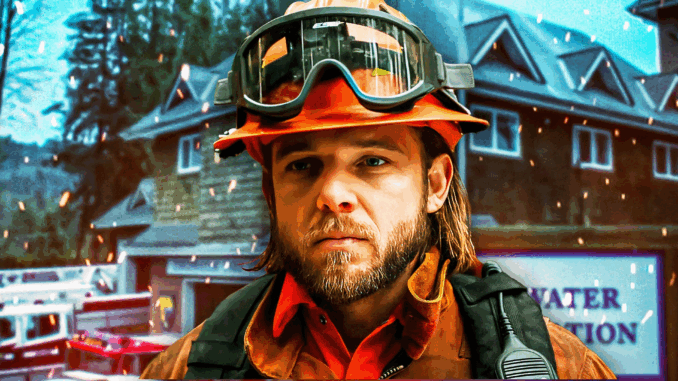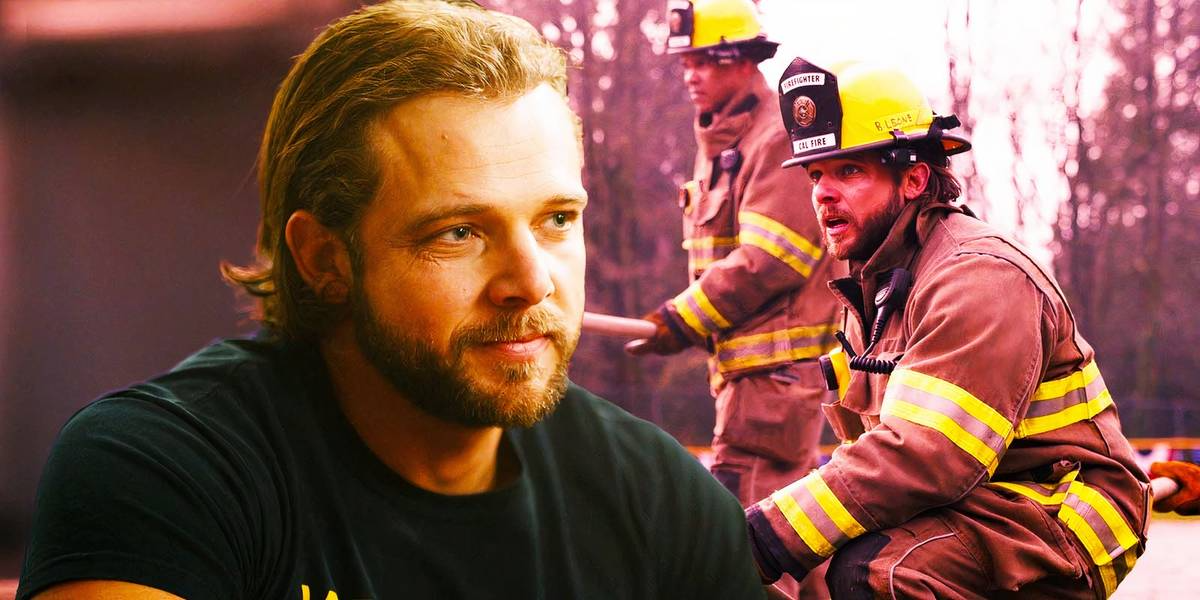
When the Camera Stops, the Writing Begins
Most know Max Thieriot as the face of Fire Country — a gritty, grounded drama about incarcerated firefighters battling both blazes and their own inner demons. But few realize that after filming, often long into the night, Max is still at work — writing the stories that light the fire.
Because Fire Country isn’t just a job for him. It’s personal. And that means every word, every scene, every moment of silence on screen begins with something deeper:
“I don’t write from ideas. I write from scars,” Max said.
A Story He’s Lived — Not Invented
Growing up in Occidental, California, Max witnessed wildfires up close. He saw the devastation. The smoke. The fear. But he also saw something else: men from prison camps fighting those fires with more purpose than many people free on the outside.
He watched those men risk their lives for $1 an hour. He saw how fire became the one thing that burned away their shame — even for a moment.
“There’s a beauty in redemption that most shows don’t explore,” he says. “I wanted Fire Country to be about that beauty.”
So when he writes a character like Bode Donovan — angry, broken, but trying — Max isn’t guessing. He’s remembering. Reflecting. Channeling every story he heard growing up.
Writing on Empty — Fueled by Emotion

Balancing writing, producing, and acting isn’t just exhausting. It’s emotionally draining.
There are days he’s on set for 14 hours. He gives everything to a scene. Then he goes home, eats dinner with his family, and opens the laptop again — not to rest, but to shape the next week’s storyline.
His writing often starts with a feeling — not a plot point. Guilt. Hope. Fear. Forgiveness. He builds the fire around that feeling and lets it spread.
“I don’t outline first. I ask, ‘What’s Bode feeling right now? What’s Sharon hiding? What’s Jake not saying?’ That’s where the story lives.”
The Hardest Scenes to Write
Strangely, the big fire rescues and cliffhangers aren’t what break Max during the writing process. It’s the quiet, raw conversations between characters — especially family scenes.
A son apologizing to a father. A mother choosing to let go. A best friend confronting betrayal.
“Those are the scenes that wreck me,” Max admits. “Because they come from real places I’ve been. Or places I’ve avoided.”
When Bode cries, Max often cries too. When Sharon gives one of her iconic speeches about forgiveness, that’s Max talking through her — saying the words he’s needed to hear himself.
Collaboration, But with a Personal Pulse
Max doesn’t write every episode alone — Fire Country has a team of talented writers. But as co-creator and executive producer, he’s involved in shaping every major arc.
He sits in the writers’ room. He challenges them to go deeper. To ask, “What’s the truth behind this scene?” — not just “What’s going to shock the audience?”
And when the writers drift too far from the show’s emotional spine, Max gently brings it back:
“Remember why we’re here. This isn’t just about fire. It’s about the people who walk through it and come out changed.”
Writing Bode: A Mirror of His Own Questions
Perhaps the most honest character Max has ever written is Bode Donovan. A man trapped in his own patterns. Desperate for redemption, but afraid he doesn’t deserve it.
Bode’s voice is Max’s voice — especially the voice that surfaces at 2 a.m. when everyone’s asleep and the only thing left is the blank page.
“Bode asks the same things I’ve asked in my life: Am I too far gone? Can people really change? What does it take to be forgiven?”
That’s why Bode isn’t a superhero. He’s messy. He backslides. He lies. But he keeps trying. And so does Max — as a writer, a father, a creator.
Healing Through Storytelling
Writing Fire Country isn’t just about entertaining an audience. It’s therapy. It’s confession. It’s a way of processing everything Max has witnessed, questioned, and lost.
When he writes a scene where a character forgives another — he’s sometimes forgiving himself. When he writes a moment of grace — it’s because he’s searching for it, too.
“I write to figure myself out. I write to heal. And sometimes, I write because I don’t know what else to do.”
The Legacy of the Page
More than anything, Max wants Fire Country to matter. Not just in ratings or renewals — but in real lives.
He wants someone who’s made a mistake to see Bode and realize it’s not too late. He wants a mother who’s estranged from her son to watch Sharon and pick up the phone. He wants people to feel less alone in their struggles.
“If we can do that — if we can help someone feel seen — then all the long nights, the fear, the pressure… it was worth it.”
Because at the end of the day, Fire Country is more than a show. It’s Max Thieriot’s open letter to the world — written in smoke, sweat, and soul.
